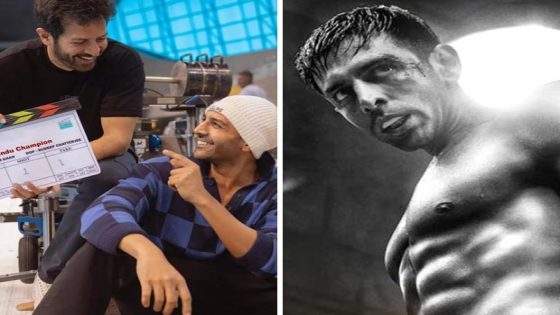Beta Film has sold Starlight Media and Gaumont Ukrainian war drama “In Her Car” to NHK Japan, Czech Republic, Latvia and Slovakia. Further negotiations are underway.
Created by Eugen Tunick – who directs alongside Arkadii Nepytaliuk – and backed by ZDF, France Télévisions and all Nordic public broadcasters, and “In Her Car” sees therapist Lydia (Anastasia Karpenko) trying to divorce her husband. It’s February 2022 and the war has started, but instead of following her daughter’s advice and fleeing the country, Lydia starts helping strangers, driving them to their destinations.
The show is set to world premiere on Feb. 19 in Berlin as part of a special event dedicated to the future of Ukraine in Europe, hosted by the Konrad Adenauer Foundation.
“The idea was to tell one story per episode: There is always a new passenger. That being said, it was also essential to follow Lydia’s story, because it keeps developing throughout the whole season. One of these people can perhaps help her solve a mystery that has been on her mind for the last eight years,” explained Tunick.
Lydia, who puts on a brave front, lost a sister. And soon, she will have to address her trauma.
“At one point, she becomes a passenger too. Usually, she is silent and composed, but those walls will eventually come down.”
A Starlight Media and Gaumont production, “In Her Car” was made in co-production with ZDFneo, France Télévisions, SRF Schweizer Radio und Fernsehen in association with The Dreaming Sheep Company, SVT, DR, NRK, RUV and YLE.
“This war has changed us,” admitted Tunick.
In Her Car
Credit: Starlight Media/Gaumont/Roman Lisovsky
“Suddenly, when someone needed help, they would get it. When I had to travel with my family, every home on the way would be open to us. I can’t imagine it happening in ‘normal’ times.”
“Lydia is a savior and a helper: That’s how she survives. But we need to start talking about our traumas and problems, because that’s how you deal with them. It won’t happen overnight, it will take time, but hopefully, this series can guide people through this entire process.”
While staying close to reality, Tunick never wanted to make another documentary about the ongoing conflict.
“In Ukraine, there are so many discussions about it now. Do we have the right to talk about this war in fictional form? Some people claim it’s time for documentaries, but that’s just not what I do,” he said.
“I think the main thing you have to ask yourself is this: ‘Do I have the right to talk about certain things?’ Personally, I don’t think I have the right to talk about what happened in Bucha or Mariupol. But I can talk about a woman who keeps on driving, because when the war started, I did the exact same thing.”
In the show, Tunick decided to combine images of continuing violence with old fairy tales recounted by his protagonist.
“I wanted to bring something mystical into this horrible reality. These are our traditional folk fairy tales, but I had to rewrite them a bit to fit these individual stories. Lydia used to tell them to her sister when they were little. It brings you back to their childhood, to something familiar, but now, they gain a new context: Russia’s aggression against Ukraine.”
On the road, Lydia doesn’t meet “heroes” – she meets normal people who desperately need her help. And, most often than not, their problems are quite ordinary.
“When the war started, we were overwhelmed. But after a while it became obvious that we still needed to deal with our relatives, we still fought with our friends,” he stated.
“When I was coming up with these stories, I kept wondering: ‘Will it be understandable in France, Germany, all these other countries?’ Can two sisters argue over their parents’ house in Paris? Can someone from Israel think about escaping the country, but his family asks him to stay? I hope international viewers will go: ‘We have the same problems. We are just lucky we don’t have such a horrible neighbor like Russia.’”
Still, he hopes “In Her Car” will bring attention to the conflict that is far from being resolved.
“People are tired of it and it’s perfectly normal. But just because you don’t hear about it all the time anymore, it doesn’t mean this violence has stopped. This show is a small reminder of that,” he said.
“We still need your help. That’s why it had to be released now: It’s a moment of crisis. We feel people’s support, but not the way we used to feel it at the very beginning. But we are still here and we are still fighting, and not just for ourselves.”

In Her Car
Credit: Starlight Media/Gaumont/Roman Lisovsky
Source Agencies




